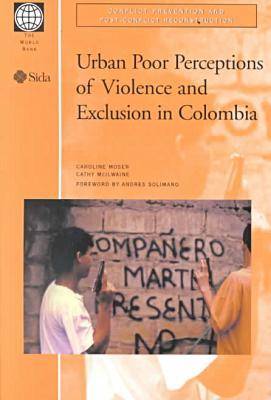Conflict Prevention & Post-conflict Reconstruction
2 total works
Violence in a Post-Conflict Context
by Caroline O. N. Moser and Cathy McIlwaine
Published 17 January 2001
In 1996, the Government of Guatemala and the guerrilla army known as the Guatemalan National Revolutionary Unity (URNG), signed the final Peace Accords ending both the United Nations monitored peace process and 36 years of internal conflict. This civil war caused untold internal and external displacement in the region as well as the deaths of over 150,000 people, the majority of whom were from indigenous groups. The legacy of this conflict which includes increasing urban violence, social exclusion, and weak levels of social capital, presents challenges for the country's post-conflict peace-building agenda. Violence in a Post-Conflict Context addresses the perceptions of violence by the people living in poor communities in Guatemala. It provides the results of a participatory study of violence conducted in urban low-income communities. The book identifies the categories of violence affecting poor communities, the costs of different types of violence, the effects of violence on social capital, the interventions employed by people to deal with the violence, and the causes and effects of social exclusion. Violence in a Post-Conflict Context incorporates the rarely heard voices of the poor by using the participatory appraisal methodology which emphasizes local knowledge and enables locals to make their own analysis of the problems that they face and identify their own solutions.
Urban Poor Perceptions of Violence and Exclusion in Colombia
by Caroline O.N. Moser, Cathy McIlwaine, and World Bank
Published 30 July 2000
Despite sustained improvements in its social and economic indicators over the past several decades and its rich stock of natural and human resources, Colombia remains plagued by violence. The very high level of violence reflects a variety of factors, including the country's simmering 50-year-old civil war, the increase in armed conflict, the rise in urban and rural crime, and drug cartel-linked violence. As the government struggles to reach peace agreements with guerilla and paramilitary groups, political violence and armed conflict have been the primary focuses of political analysts and civil society groups alike. The perceptions of violence by people living in poor communities have received much less attention. This report addresses the issue by providing the results of a participatory study of violence conducted in low-income urban communities in Colombia.

